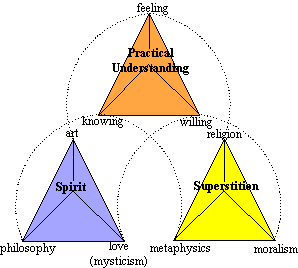
 |
Freethought & Rationalism ArchiveThe archives are read only. |
|
|
#11 | |
|
Veteran Member
Join Date: May 2005
Location: Midwest
Posts: 4,787
|
From one of those other threads:
Quote:
Ben. |
|
|
|
|
|
#12 | ||||||||||
|
Veteran Member
Join Date: Mar 2004
Location: Massachusetts
Posts: 2,230
|
Quote:
Quote:
Quote:
Quote:
Quote:
Quote:
Quote:
Quote:
Quote:
Quote:
|
||||||||||
|
|
|
|
#13 | |
|
Veteran Member
Join Date: Jan 2006
Location: Edmonton
Posts: 5,679
|
Quote:
Yeah, not authentically Johannine, but authentically ancient. |
|
|
|
|
|
#14 | |||||||
|
Veteran Member
Join Date: Jan 2006
Location: Edmonton
Posts: 5,679
|
Let's make this a wide-ranging, slow-paced discussion, shall we? You and Ray have brought up quite a number of things. So let's take our time and deal with them thoroughly.
Quote:
Quote:
Quote:
Whosoever shall look on a woman to lust after her, hath already committed adultery with her in his heart.—Mt 5:28All are guilty, and the greatest sin is moralistic criticism. The man who had sex with the woman is no more guilty than the men who secretly lust after her, and now self-righteously condemn her. Quote:
Quote:
 Quote:
Quote:
|
|||||||
|
|
|
|
#15 | ||||
|
Veteran Member
Join Date: Mar 2004
Location: Massachusetts
Posts: 2,230
|
Quote:
Ambrose (ca. 397): "At the same time also the Gospel which has been covered, could produce extraordinary anxiety in the inexperienced, in which you have noticed an adulteress presented to Christ and also dismissed without condemnation…. How indeed could Christ err? It is not right that this should come into our mind." So he thought Christ erred? Jerome (ca. 420) “in the Gospel according to John in many manuscripts, both Greek and Latin, is found the story of the adulterous woman who was accused before the Lord.”... So, he didn't see it in Luke. Augustine (ca. 430) “certain persons of little faith, or rather enemies of the true faith. fearing, I suppose, lest their wives should be given impunity in sinning, removed from their manuscripts the Lord’s act of forgiveness toward the adulteress, as if He who had said ‘sin no more’ had granted permission to sin.” And how does he "know" this? He doesn't say. :huh: So, because certain theologians in the 4th and 5th centuries had seen this pericope in some manuscripts, and could imagine a reason for its excision, we should too. They have no more evidence when it was taken out, by whom, nor when it was re-added, and by which man or group. If they did know, certainly they would have said. You'd think there'd be rumors at least, if such a tampering had happened. Quote:
Quote:
Quote:
|
||||
|
|
|
|
#16 | ||||
|
Veteran Member
Join Date: Jan 2006
Location: Edmonton
Posts: 5,679
|
No, Ambrose is chastising his co-religionists by telling them that if they dislike this passage, they are imputing error to Christ.
Quote:
Quote:
Quote:
Quote:
|
||||
|
|
|
|
#17 | ||||
|
Veteran Member
Join Date: Mar 2004
Location: Massachusetts
Posts: 2,230
|
Quote:
Quote:
Quote:
Quote:
|
||||
|
|
|
|
#18 | |||
|
Veteran Member
Join Date: Jan 2006
Location: Edmonton
Posts: 5,679
|
Quote:
Quote:
Quote:
|
|||
|
|
|
|
#19 | |||
|
Veteran Member
Join Date: Mar 2004
Location: Massachusetts
Posts: 2,230
|
Quote:
If anyone else can help out here, please do comment. Quote:
Quote:
|
|||
|
|
| Thread Tools | Search this Thread |
|